

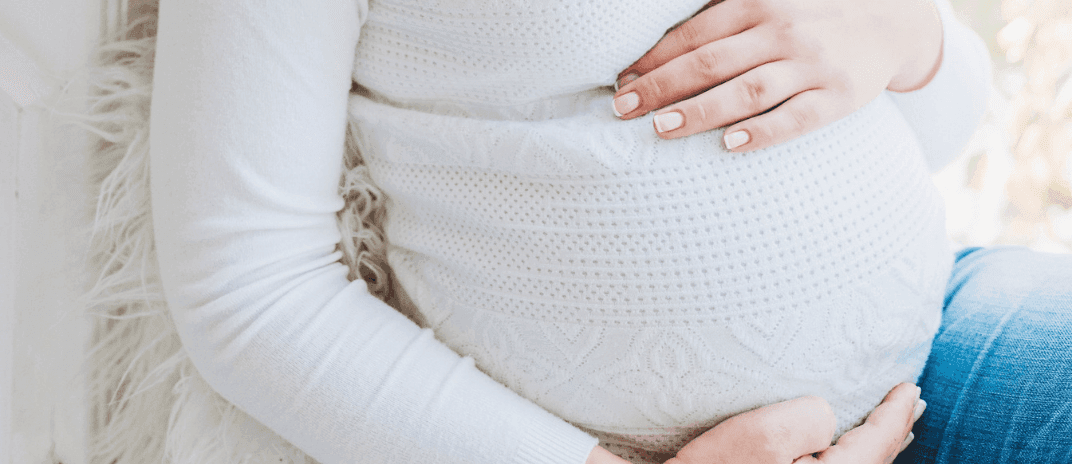
Being pregnant means having to go through major changes to your body as the baby grows. Oftentimes, it feels like an impossible task to find a comfortable sleep position. This is why, in this article, we will help you ease discomfort and get better sleep by sharing the best pregnancy sleeping positions.
If you’re ready, keep reading to discover how to enjoy a good night’s sleep for both you and your baby.
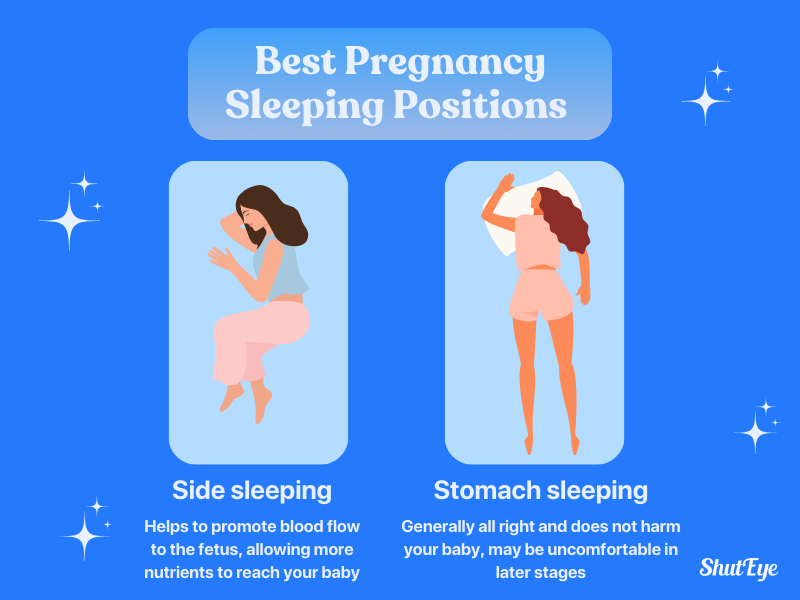
As pregnancy progresses, your uterus will keep expanding to accommodate the growing fetus. For pregnant women, this means that you may find it increasingly harder to get comfortable in bed.
Here are some of the recommended maternal sleep position according to experts.
The best sleep position, recommended by most medical experts is side sleeping. More specifically, lying on your left side.
Sleeping on your left side is highly recommended because it helps to promote blood flow to the fetus, allowing more nutrients to reach your baby. It also doesn’t place much pressure on the veins and internal organs compared to other positions [1], [2].
If you are in your second or third trimester, you will be strongly advised to sleep on your side to prevent complications.
Sleeping on your stomach is generally all right and does not harm your baby if you are in the early stages of pregnancy. In the later stages, you may find it difficult to lay in this position as your growing belly may cause discomfort. Then, you may decide to find a safer position such as side sleeping.
If you prefer to lay in this position, you may want to consider using a pregnancy pillow to feel more at ease.
If you are expecting twins or more, you should sleep in a side-lying position throughout your pregnancy duration. Use additional pillows to provide more support and comfort to your back and belly [3].
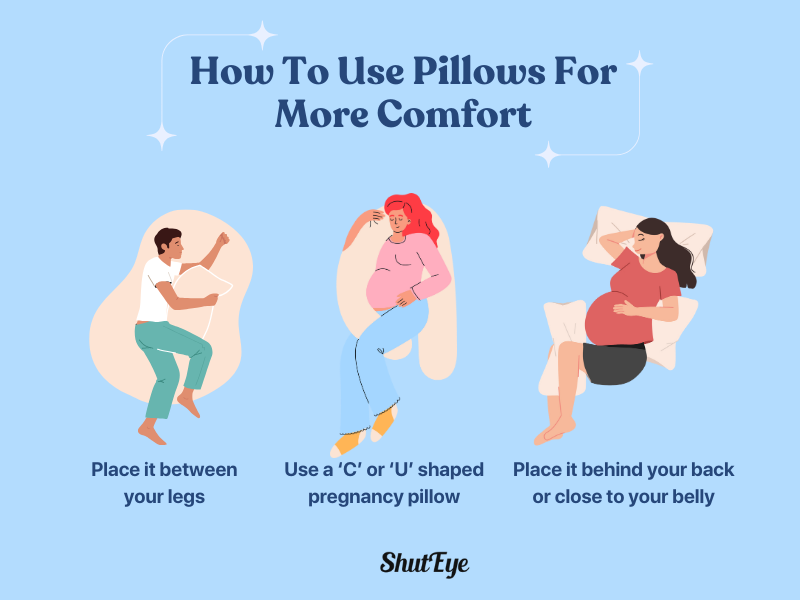
To ensure that you feel more comfortable sleeping in these positions, you may use pillows while you sleep.
Some ways that you can use a pillow include:
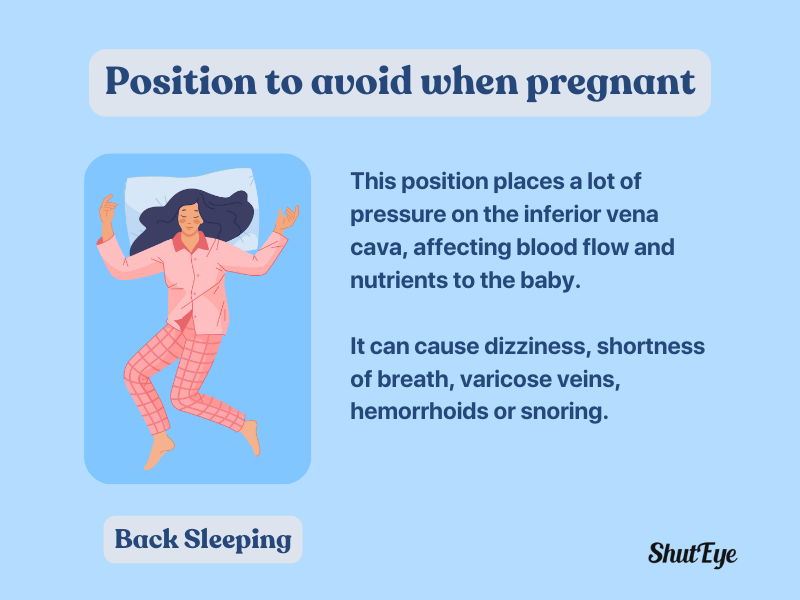
When you are pregnant, you should avoid sleeping on your back. Sleeping on your back in the first trimester is still safe to do so but as your belly grows and gets heavier, you should opt for other positions.
Lying on your back is not recommended because of the amount of pressure that you will place on the inferior vena cava. This vein is responsible for bringing deoxygenated blood from your body, back to your heart. So if it is not functioning well, it affects blood flow and nutrients to the placenta and baby.
Additionally, back sleeping can cause dizziness, shortness of breath, varicose veins, or hemorrhoids and even snoring which can be a sign of sleep apnea [4].
Whether your sleep position leads to adverse pregnancy outcomes has been highly debated. In previous studies done, it was reported that sleep positions such as back and right side sleeping are linked to a higher risk of stillbirth, low birth weight, pre-eclampsia, and fetal growth restriction.
However, in a recent science update, researchers conducted another study with more than 8,700 women. The results showed that an adverse outcome occurred in roughly 1,900 pregnancies but they were equally likely regardless of sleep positions [5].
At this current moment, researchers concluded that sleeping positions during pregnancy do not affect the risk of complications.
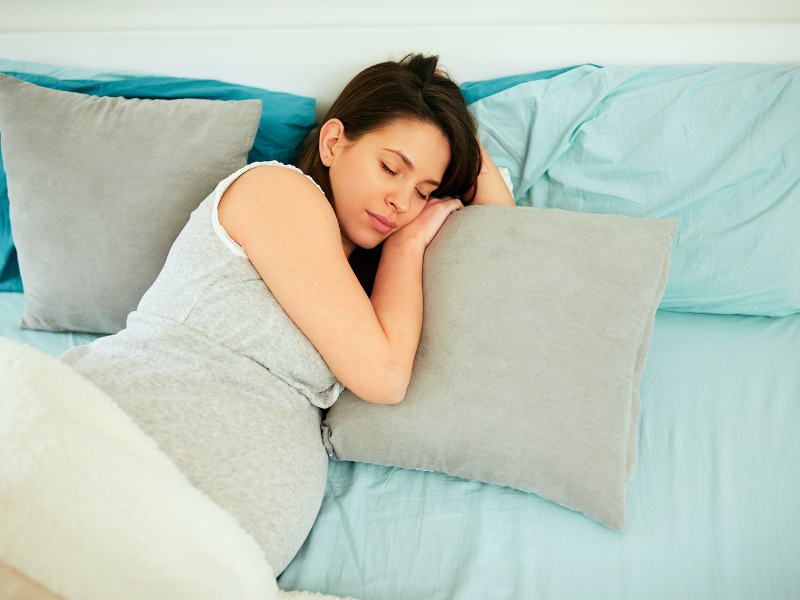
Besides sleep positions, there are other ways to sleep better while you are pregnant. Here are some sleep tips for each trimester to help you find comfort and ensure your safety.
During the first trimester, you should try to limit your liquid intake at night. This is to avoid frequent trips to the bathroom, which can disrupt your sleep and lead to fatigue.
Some other sleep tips:
The second trimester is usually the most physically enjoyable period for many women. You would likely not feel morning sickness and less tired overall [6].
During this period, you want to do these things to sleep better:
As you enter the third and final trimester, you may start to feel increasingly uncomfortable with the size of your belly. As a result, you may have trouble sleeping or waking up frequently.
To help you get better rest during this period:
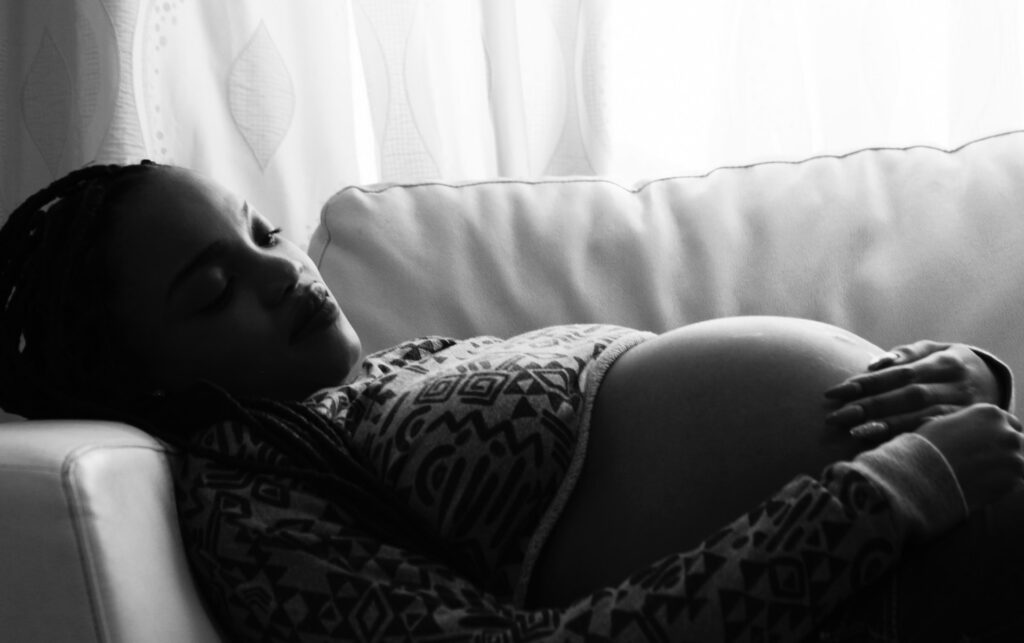
As you progress through each trimester, adjust your sleeping methods for optimal rest, such as sleeping on your side during pregnancy with a pillow for support. Avoid back sleeping to prevent pressure on blood vessels. Adequate sleep during pregnancy supports your health and the baby’s well-being.
If you continue to struggle with sleep problems while pregnant, check out our patented sleep tracking app, ShutEye® to help you get better sleep at night.
American Pregnancy Association (2024) Best Sleeping Positions While Pregnant [online]. Available at: https://americanpregnancy.org/healthy-pregnancy/pregnancy-health-wellness/sleeping-positions-while-pregnant/
Baby Center (2023) What's the best sleeping position during pregnancy? [online]. Available at: https://www.babycenter.com/pregnancy/your-body/pregnancy-sleeping-positions_40007734
Health Pulse (2024) Optimal Sleeping Positions During Pregnancy [online]. Available at: https://www.pantai.com.my/health-pulse/optimal-pregnancy-sleeping-positions
John Hopkins Medicine (2024) The Second Trimester [online]. Available at: https://www.hopkinsmedicine.org/health/wellness-and-prevention/the-second-trimester
NIHCD (2019) Science Update: Sleeping position during early and mid pregnancy does not affect risk of complications, NIH-funded study suggests [online]. Available at: https://www.nichd.nih.gov/newsroom/news/092019-pregnancy-sleep-position
Román-Gálvez, M. R., Martín-Peláez, S., Hernández-Martínez, L., Cano-Ibáñez, N., Olmedo-Requena, R., Martínez-Galiano, J. M., Bueno-Cavanillas, A., & Amezcua-Prieto, C. (2022). Caffeine Intake throughout Pregnancy, and Factors Associated with Non-Compliance with Recommendations: A Cohort Study. Nutrients, 14(24), 5384. Available at: https://doi.org/10.3390/nu14245384
Stanford Medicine (2024) Sleeping Positions During Pregnancy [online]. Available at: https://www.stanfordchildrens.org/en/topic/default?id=sleeping-positions-during-pregnancy-85-P01238